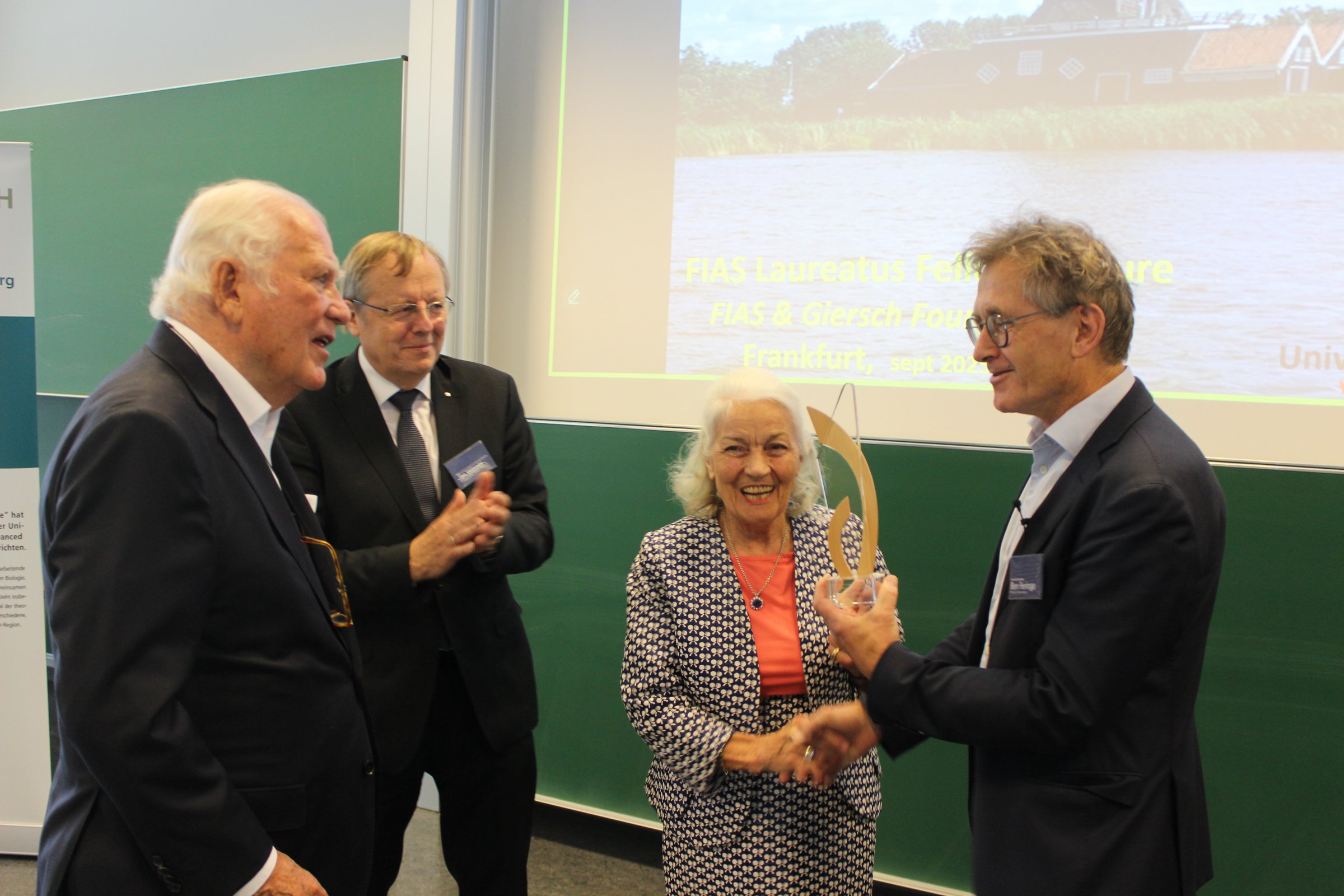September 11, 2025
Smaller, faster – nanomachines
Captivating lecture by Ben L. Feringa, Nobel Prize winner and FIAS Laureate
Nobel Prize winner Ben L. Feringa fascinated over 130 guests (and several online listeners) with his lecture “The Art of Building Small” on the occasion of the presentation of the Senior Fellow Laureatus Award. He took them on a journey into the tiny world of molecular motors in our bodies.
For the sixth time, FIAS and the Giersch Foundation presented the Laureatus Award to a Nobel Prize winner. The Giersch couple in person and FIAS Director Jan Wörner jointly presented the award; FIAS Fellow Sebastian Thallmair described the award winner's discoveries and career.
“Motors are the basis of life,” said Feringa in his subsequent lecture. The movement of tiny molecules drives the metabolic processes in our bodies. These engines could be used to move tiny systems using targeted design. The audience was fascinated, for example, by the “nano-cars” designed by him and his team: tiny molecules that move forward through folding processes.
The speaker captured the audience's attention with vivid comparisons: For example, although humans are highly complex, they are made up of significantly fewer chemical elements than a modern smartphone. He described the molecular world with an image: nanotechnology could be used to fit around 250 million letters onto the cross-section of a hair. And it would be possible to fit 240 years of continuous music onto the surface of a CD. In addition, the power of small molecules is phenomenal: our energy-converting enzymes, the ATPases, recycle half of our body weight every day.
Feringa also highlighted a number of applications, such as a molecule that can be used to influence cell rhythms or one that enables surfaces to be self-cleaning. He also referred to the approach also being researched at FIAS of controlling drugs using light.
Throughout the lecture, Feringas enthusiasm for research and curiosity was evident - something that, according to his own statement, has accompanied the farmer's son from the Netherlands since childhood. He emphasized that it is important to remain curious and, above all, to inspire the next generation. The FIAS laureate succeeded in doing so very convincingly with his audience—which included specialists, FIAS friends, and guests from the neighborhood—as evidenced by the numerous questions following the lecture and during the reception.
